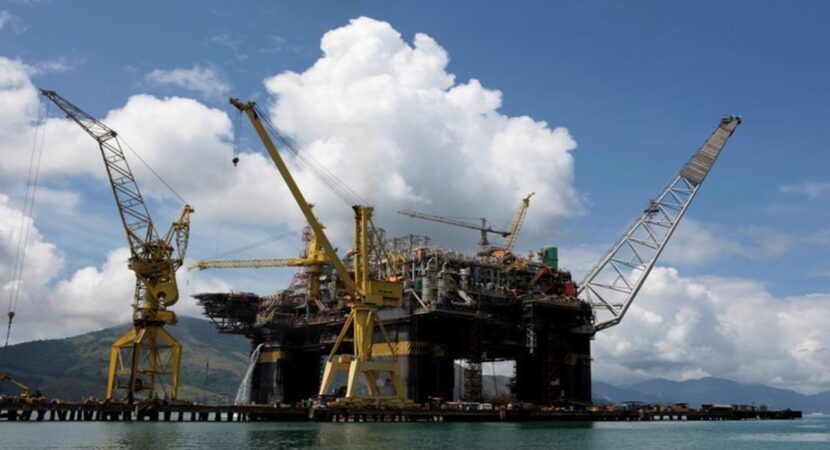
Shipbuilding: Petrobras platforms P-78 and P79 will be built by Asians
On Monday (01/02), Petrobras received commercial proposals from companies pre-qualified for the bidding process for the construction of platforms P-78 and P-79, which will operate in the Búzios field, in the Santos Basin pre-salt layer. Three consortia with the participation of Asian shipyards prepared to make an offer to the state-owned company.
Read also
- 100 job vacancies in elementary education in the function ASSISTANT for civil works
- The oil giant Halliburton, recruits for jobs in Macaé and Rio de Janeiro, today February 4
- February kicks off with 60 job openings to work at the world's leading steelmaker ArcelorMittal
- The national leader in energy generation Eneva wins the dispute and acquires 7 Petrobras onshore blocks, in Amazonas
The tender, launched in July 2020 by Petrobras, provides for the contracting of platforms P-78 and P-79, for the important field of Búzios, in the pre-salt of the Santos Basin, the company's main bet in guaranteeing the growth of its future production curve.
The auction that should have the participation of the shipyards in Brazil, but, due to the contracting model, only counted on the proposals from South Korea: Daewoo, Samsumg and Keppel (Hyundai).
At this stage, the companies presented their prices, in addition to the technical proposal. See the prices presented and the name of the two possible winners:
- 1st Keppel (Hyndai) – BRL 12.521.821.104,00
- 2nd Daewoo – BRL 14.107.992.912,00
- 3rd Samsung – BRL 15.146.522.280,35
About the P-78 and P-79 platforms
Both platforms will have the capacity to process 180 barrels of oil and 7,2 million cubic meters of gas daily. The forecast is that these units will come into operation in 2025.
Platforms of a similar size are estimated to cost around US$1,7 billion to build, according to a Reuters source.
New hiring model required by Petrobras
The new platforms are the result of Petrobras' strategy to develop new projects for its own units, incorporating lessons learned from the FPSO's already installed in the pre-salt layer, including contracting and shipbuilding aspects, the company said earlier.
The state-owned company uses over time both its own platforms, contracted in the modality called EPC, and chartered, depending on economic decisions.
According to the Brazilian oil company, the company's high debt over the past decade contributed to the decision to prioritize the charter model, whose costs can be spread over the balance sheet over 15, 20 years, instead of billionaire disbursements for the construction of the units.
The decision was reinforced after Lava Jato, launched in early 2014, when various illicit acts were revealed in contracts for the shipbuilding of maritime production units in Brazil and in which it ended up preventing the hiring of several companies, in addition to closing others.
Due to all this problem, the contracted platforms experienced many delays, and made Petrobras choose to charter new platforms.
According to Petrobras, in order to diversify its portfolio again, the company launched a new contracting modality which, according to it previously informed, incorporated lessons learned.
Among the changes, Petrobras will contract a single supplier in the EPC modality, responsible for all stages of the project. In the past, the state-owned company participated in the contracting of suppliers that built different parts of the same unit.













The late Dr. Enéas Carneiro, a very…
Will still exist
I live in Mozambique How to…
I never leave Brazil but I would love one…
I have a C4 Cactus Shine Pack THP…
The old Monza was a super car…
Tesla Model S plaid has 1035 horsepower,…
My watzp,62.9.8210.1837.